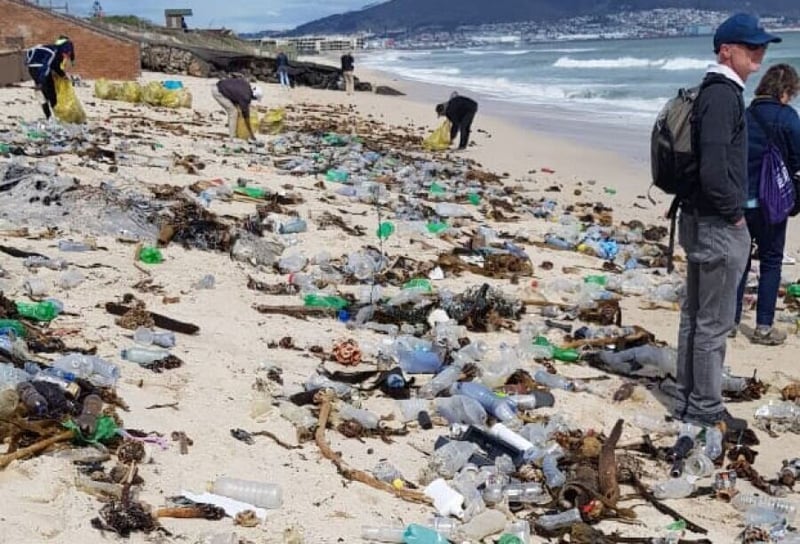Initiative to Capture Cape Town’s Trash Before it Hits the Coast
Written by: Taryn Save to Instapaper
The City of Cape Town has joined key players and interested groups in the first of many meetings, to investigate ways to remove garbage from Cape Town’s rivers so it doesn’t make it into the ocean.
Included at the meeting were Plastics|SA, the South African Department of Environmental Affairs, Woolworths, The Percy Fitzpatrick Institute of African Ornithology, The Polyolefin Recycling Company (Polyco), Cape Town non-profit organisation Clean C, local digital marketing firm Gnu World Media and several other groups.
John Kieser, Sustainability Manager of Plastics|SA and facilitator at the meeting, says the main goal of this network will be to share information, ideas and resources for minimising the amount of litter that washes into the city’s seas.
Black River in Observatory is the first focus area. Already, Plastics|SA and the City of Cape Town’s Environmental Management Department have set up a system to remove litter floating on the river – 80 to 90% of which is plastic. A team gathers plastic at designated areas once or twice a week and takes it to Bokmakierie Primary School, where it’s separated and sent off for recycling.
In KwaZulu-Natal, the Department of Environmental Affairs is currently conducting similar projects, focusing on the Umgeni and three other rivers. If all goes to plan, the Department may consider funding similar Expanded Public Works Programme (EPWP) projects in Cape Town.
In the meantime, Kieser says the Cape Town network of groups will prevent people with the same vision – keeping our rivers and thus our oceans clean – from working in silos.
“It’s great that the plastics industry is facilitating this kind of dialogue,” says Gregory Player of NPO Clean C. With support from Cape Town-based digital marketing firm Gnu World, Clean C is working on a similar project – installing litter-catching nets over stormwater drains in the 4 kilometres between Sunset Beach and Milnerton Lagoon. Large amounts of household and general refuse – mostly plastic – washes into the lagoon from drains in areas including Joe Slovo, Sanddrift and Milnerton and then ends up on the beach and in the ocean.
The project would require a trained team of five to do regular clean-ups, and equipment like wheelie bins, uniforms, and a truck to transport the collected garbage.
Player says many EPWP projects run only in the short term and that most of the achieved improvements are lost once funding ends. “We’d like sponsorships to get the project off the ground – but once it’s implemented, we will move towards making it self-sustaining,” says Player.
Taryn Nightingale, PR and outreach specialist at Gnu World Media, says, “People forget that we form part of the same ecosystem the rivers, plants, oceans and animals do. We need to change how we view plastic and its value. When it’s recycled, there’s the opportunity to earn money from it, but when thrown away, it has grim consequences.
”Currently, only 5% of South Africans recycle. Mandy Naudé, CEO of Polyco, says the main reasons for this are a lack of education, incentive and infrastructure. “We must make it convenient for South Africans to recycle.” The organisation recently launched PACKA-CHING, which aims to increase recycling in informal settlements and lower-income areas. It has been running in Langa for about a year, and has resulted in the removal of about 240 000 kilograms of plastic since its inception.
Anyone interested in joining this network of plastic catchers or in helping in some way can contact John Kieser at This email address is being protected from spambots. You need JavaScript enabled to view it..
Get new press articles by email
The Pulse Latest Articles
- Education Is The Frontline Of Inequality, Business Must Show Up (December 11, 2025)
- When The Purple Profile Pictures Fade, The Real Work Begins (December 11, 2025)
- Dear Santa, Please Skip The Socks This Year (December 10, 2025)
- Brandtech+ Has 100 Global Creative Roles For South African Talent (December 9, 2025)
- The Woman Behind Bertie: Michelle’s Journey To Cape Town’s Beloved Mobile Café (December 9, 2025)
